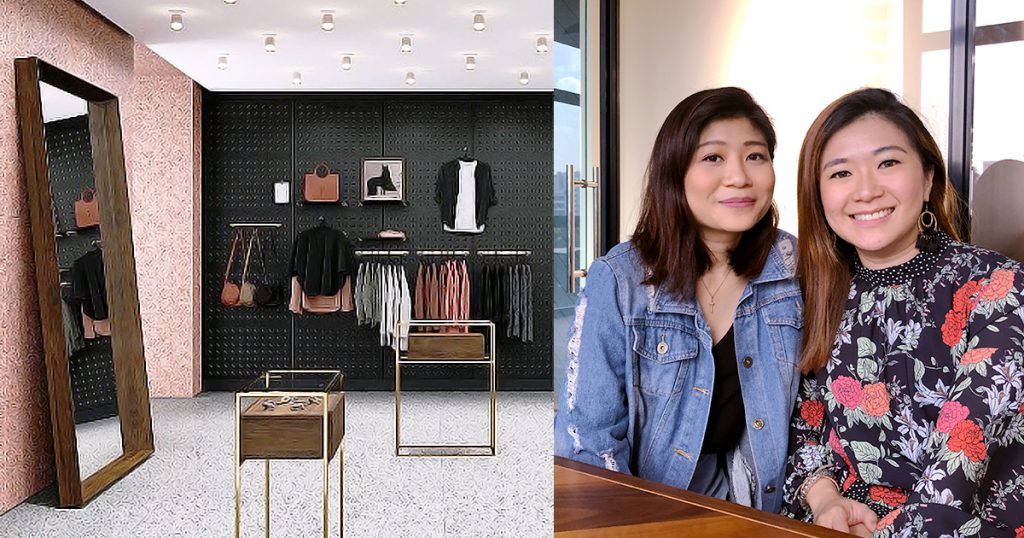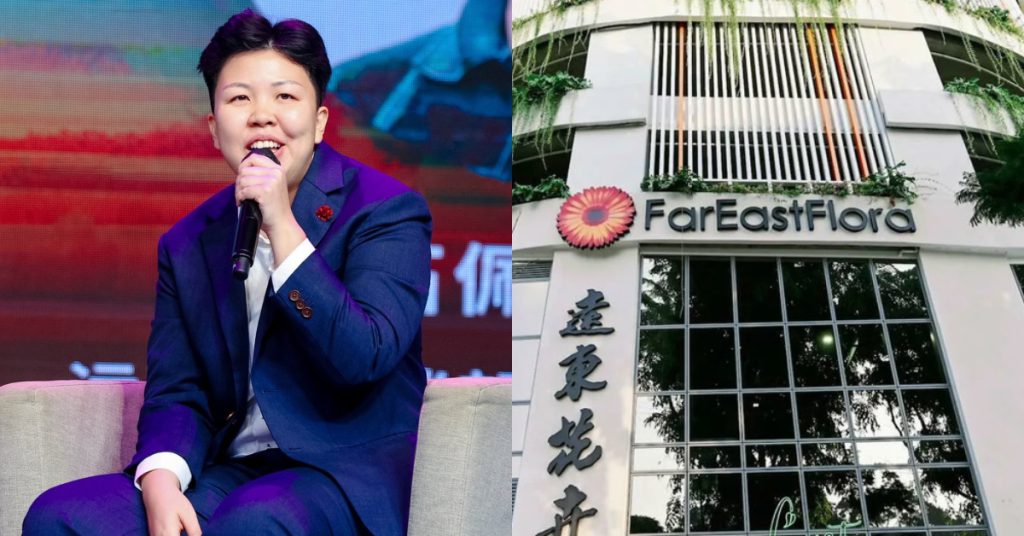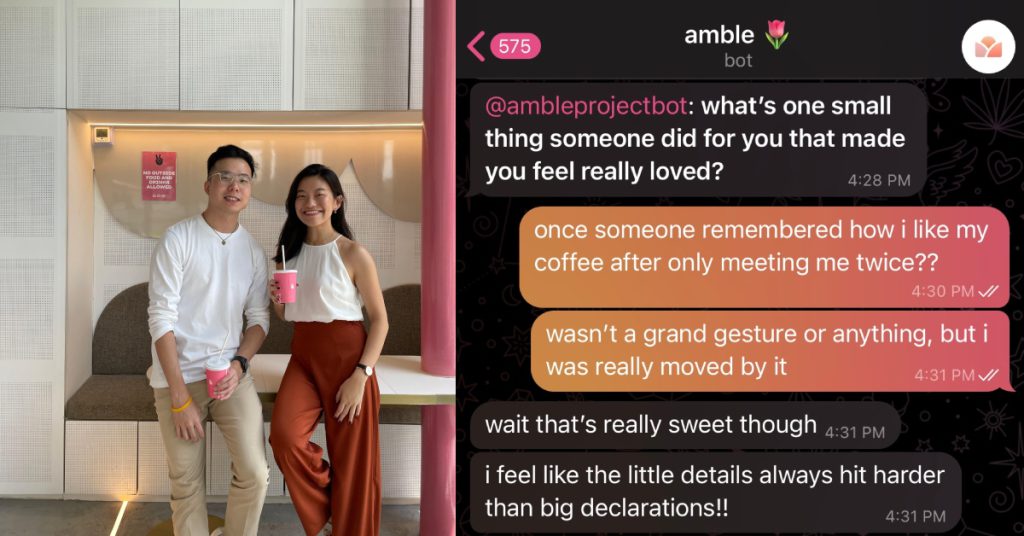When you walk into a store, navigate through its layout and browse the products displayed to entice you, have you ever wondered how it all came together?
Who designs the fancy window displays?
Where do shop owners buy their racks, shelves, props and mannequins?
Chances are you haven’t thought about this before, but these shop fittings are indispensable to support the main stars of the show—without them, you’d be shopping for clothes and other goods on the floor.

For over 20 years, retailers in Singapore could count on a local family business, Font Creative, to provide all the physical fittings they needed to set up their shops.
They supported many established retailers and department stores back in the day, like Isetan, Daimaru, Club 21, CK Tang and FJ Benjamin.
Now, retail is very different from what it once was, with new challenges making the path look steeper and more uncertain for entrepreneurs.
But second generation owners, and sisters, Nikki and Alison Chua don’t shy away. As they helm a new era of the business, they’re evolving it to make sure they can continue helping retailers overcome the industry’s ever-changing obstacles.
From One Product To Many(quins)

“Our parents used to operate out of the top floor of our grandfather’s tin factory, and a lot of our younger days were spent there with them,” Nikki shares.
The 34-year-old explains that Font Creative started out with a singular focus on mannequins.
Her parents, the original founders, Jack Chua and Susan Ong had been involved in the retail scene together with other partners for awhile, before they officially registered their own company in 1998.
At some time, they wanted to go into manufacturing but weren’t able to bring it to fruition, because they couldn’t produce with fiberglass due to factory regulations set up around environmental concerns.
So instead they imported from overseas, and were still able to be “one of the few people who sold mannequins in Singapore”.
Since [there weren’t many other local suppliers], business was good. Mannequins were their core product, and that was sufficient back then.
Nikki remembers when her parents would receive containers after containers of mannequins as sales constantly flowed in, which isn’t something they can easily expect these days, she says.
Over years, they vastly expanded from mannequins alone to all kinds of racks, shelves, and display props—they even help restaurants produce those mouth-watering fake food replicas that whet your appetite.


While credit largely goes to their parents’ strength in building deep relationships to make repeat customers, it also makes a significant difference that cheap online marketplaces like Taobao and Alibaba weren’t around at that time.
That’s one of the areas where Nikki and Alison had to adapt when they joined the family business in 2009 and 2011 respectively.
Prior to that, Nikki had worked for Marriott Hotels for two years and Alison (32) was in the wedding industry for a year, but taking over from their parents was something they both felt was natural.
“I always modelled myself after my mum. [Seeing her] as a businesswoman while she was also raising us and doing so much for us, I always thought of her as a power figure [that I aspired to become],” says Nikki.

Offline Shopping Can’t Escape Digital Tools
Nikki and Alison started under a new name Retailers’ Market, so people could associate the company better with what it offers.
Previously, the original name was chosen to sound similar to a Chinese word (fang) for ‘shopping square’, but as you may expect, it caused some confusion and had people ringing in to enquire if they designed fonts.
Their parents now still carry on Font Creative as a business arm that creates dioramas for museums and theme parks, while the sisters take full charge of serving the retail sector.
“One of the most concrete changes we made was moving the business into ecommerce,” Nikki says.


Besides setting up an online platform for retailers to find them, they had lots of work cut out for them when it came to digitising processes.
It was an overwhelming task as their parents had operated very traditionally, with invoicing, quotations and inventory all done manually.
They tapped on “all the productivity grants [they] could” to help them make the transition into digitised inventory tracking, payroll systems and conducting sales projections regularly.
By automating many functions, they could spend more time and energy to explore new channels for Retailers’ Market.
Over their ten years in the business, most of their new initiatives have been reflective of how the industry has changed.
With more people browsing online marketplaces, for example, they took advantage of listing their products externally on Qoo10, Lazada and HipVan.
This would have been something their parents felt unsure of at the beginning, as they worried that letting someone else sell your goods would dilute your own brand.

Nikki and Alison also opened up a rental option to let retailers use their products temporarily at more affordable prices, taking cue from the increase in pop-up stores, markets and fairs.
As retail is highly seasonal, they make sure they tide over lull periods by helping residential customers create home set-ups with their interior fittings too.
Making It Work As Family
While the second-gen owners have set many new things in motion, change never comes easily.
It seemed like we waited many years [to do things differently]. I think it was always out of respect for our parents [that we kept within] the boundaries of [our roles as] children, and didn’t dare to question them like a business partner would.
They had frustrating and stressful times when they knew they were “working really hard to try and bring in the sales”, but couldn’t see or understand “where the money was going”.
When they did bring up suggestions, it also took a bit of convincing to assure their parents that modernising the business wouldn’t dilute the traditional values they built it upon.
It was only when their mother was hospitalised in early 2018, that they really had to take full hold of the reins to manage everything on their own.
“During the whole exercise of consolidating everything, and being able to see the numbers, that’s when we knew [Retailers’ Market] was really something worth developing, and there’s still a lot of opportunities in it for us to develop,” Nikki says.

Although mixing work and family may seem precarious to some, working together as sisters hasn’t been hard for them at all.
“We complement each other quite a bit, we’re like yin and yang in the business,” Nikki says endearingly. She’s the one who’s usually quick to come up with ideas, and Alison will jump to it and get things running.
What helps most is that they both know they have “a common goal of driving the family business to success”, they say.
Service Can’t Be Bought On Taobao
Retailers’ Market has racked up plenty of notable work with clients ranging from Poh Heng Jewellery to Premier Football, along with fitting out multiple booths at the F1 Pit Building’s biannual Boutique Fairs.
They also worked on synthetic food displays for a handful of F&B tenants at Jewel Changi, like La Lola, Auntie Anne’s, and Rich and Good Cake Shop.


Their platform is pretty much solidified as a one-stop shop for retail business owners now, but that’s no longer enough.
With the intense online competition, they have to move from offering a curation of physical products towards providing services that are—as they call it—not “Taobao-able”, to keep ahead.
Nikki shares that one of the most important lessons they’ve picked up in the industry is “to be nimble and to change if needed”.
“What we’re trying to build moving forward is [to provide] store planning and design as a service. That’s our eventual goal,” she quips.
Their first step towards this came when ST Logistics hired them to redesign the SAF eMart at Tengah Air Base.
Faced with an army store that was last renovated around 30 years ago and had nothing but monotonous “shelves and shelves of items”, they refreshed it to become a more modern and comfortable lifestyle space complete with lounge seating and indoor plants.
They’ve since been taking on more conceptual visual merchandising projects for clients such as swimwear label K.Blu, which opened a 6-month pop-up at Paragon.

One of the ways businesses try to revive retail is by creating experiential shopping, and the sisters believe this opportunity should be available for retailers of all sizes, not “only the bigger boys”.
That’s why at times they’re willing to take “very little margin” to give a smaller brand the chance to test out new concepts, as they did for K.Blu.
We’re very passionate about retail, and we want to help [retailers] because we know that retail is not easy.

Most retailers’ woes nowadays comes from struggling against the ecommerce wave.
But Nikki and Alison are excited that the coming years will get more interesting.
Many online shopping marketplaces that exploded rapidly in the past few years thanks to investors now have to show how they will make real money, instead of just burning through funds by selling things at ridiculously cheap prices, they say.
“It sort of levels out the playing field again, so I think [retail] will be a lot more fun in these few years.”
To push forward in the few years ahead, they’ll be working on designing their own proprietary shop fittings and tapping on software to set up a digital consultancy system, among some ambitions.
Ultimately, they plan on becoming the go-to agency for retailers in Singapore!
Find out more about Retailers’ Market at their website and Facebook page.
Featured Image Credit: Vulcan Post / Retailers’ Market











